==================================================================
REGISTRATION OPEN SOON: SAVE THE DATES
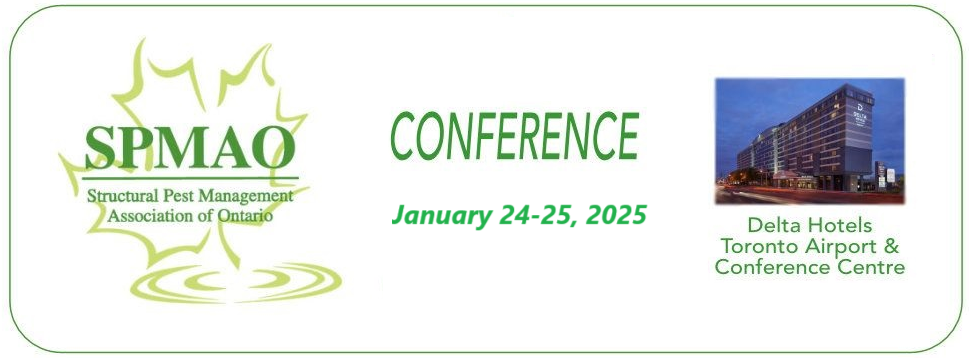
SPMAO 2025 Conference
Delta Hotels Toronto Airport & Conference Centre
655 Dixon Road, Toronto, Ontario M9W 1J3
January 24- 25, 2025
Guest Room Booking for SPMAO 2025 CONFERENCE
Group Room Rate of $203 – $255 CAD
Last Day to Book at Group Rate: December 31, 2024
==================================================================
A BIG THANK YOU TO EVERYONE THAT MADE IT OUT TO THE WORKSHOPS
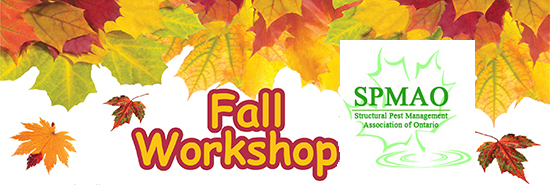
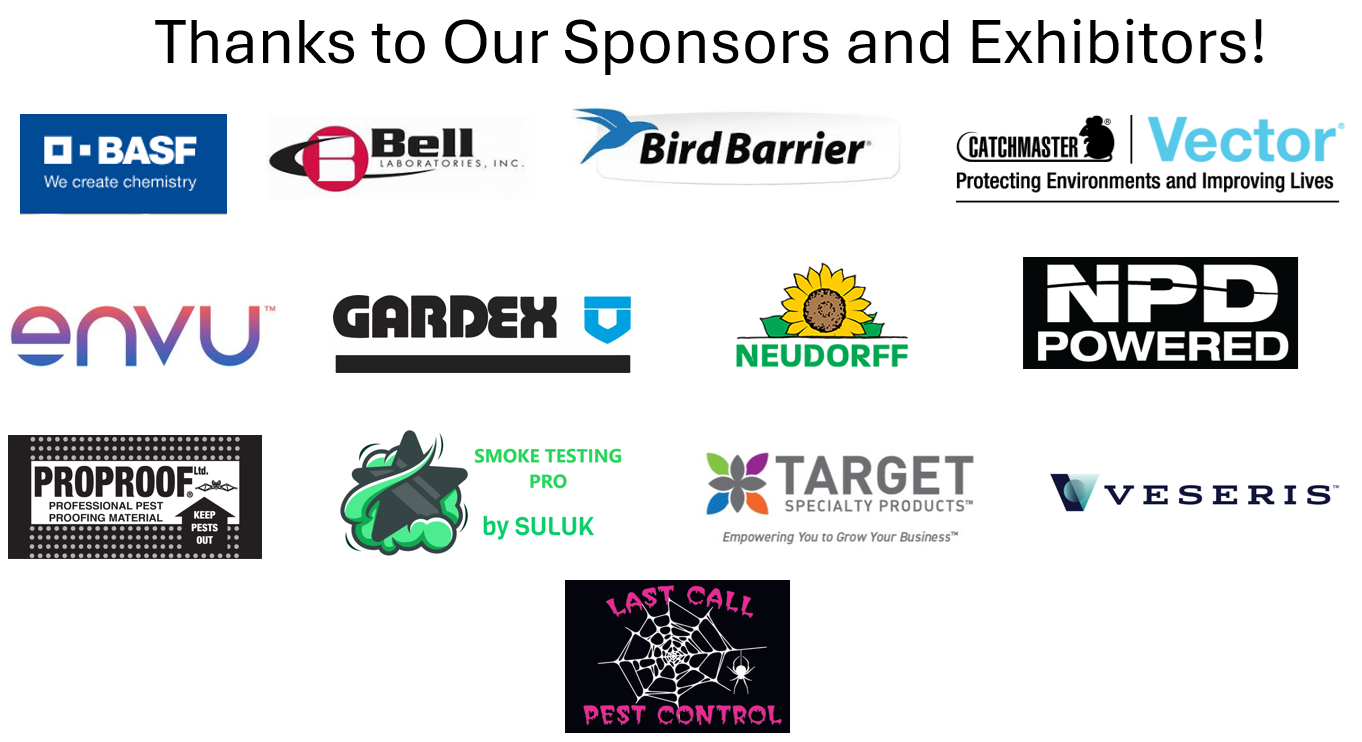
THANKS AS WELL TO THOSE WHO ATTENDED THE GOLF TOURNAMENT

==================================================================

SPMAO’s Efforts to Secure Continuing Education Credits:
Enhancing the Pest Control Industry
The Structural Pest Management Association of Ontario (SPMAO) is committed to advancing the pest control industry through continuous education and professional development. Currently, SPMAO is working diligently to establish a robust system for Continuing Education Credits (CECs). This initiative aims to elevate industry standards, enhance professional competence, and ensure the delivery of high-quality pest management services. This article explores SPMAO’s efforts to secure CECs and the benefits this brings to the industry.
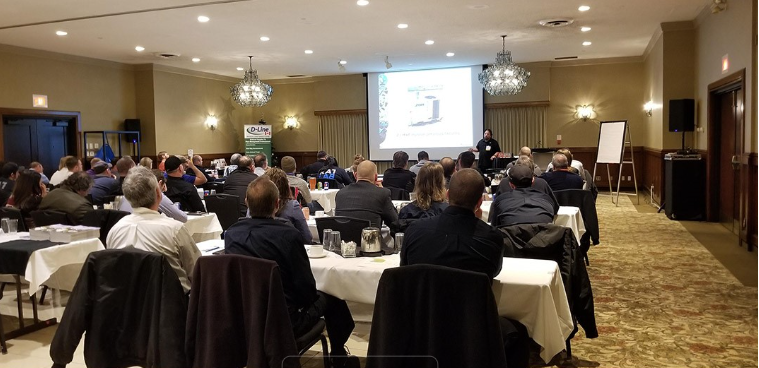
SPMAO’s Pursuit of CECs
- Developing Comprehensive Training Programs: SPMAO is in the process of creating a diverse array of training programs that cover essential aspects of pest control. These programs include up-to-date information on new technologies, methodologies, safety protocols, and regulatory changes. The goal is to provide pest control professionals with the knowledge they need to excel in their roles.
- Advocacy and Collaboration: SPMAO is actively collaborating with regulatory bodies, educational institutions, and industry experts to develop CEC requirements that are both rigorous and relevant. By engaging stakeholders, SPMAO ensures that the CEC programs are comprehensive and beneficial to all parties involved.
- Implementing Online Learning Platforms: Recognizing the need for flexible and accessible education, SPMAO is investing in online learning platforms. These platforms will offer a variety of courses that professionals can complete at their convenience, making it easier for them to fulfill their CEC requirements.
- Organizing Workshops and Conferences: SPMAO is planning to host regular workshops and conferences where professionals can earn CECs through participation. These events will feature expert speakers, hands-on training sessions, and networking opportunities, providing a well-rounded educational experience.
Benefits of CECs for the Pest Control Industry
- Enhanced Professional Competence: Continuing education ensures that pest control professionals remain knowledgeable about the latest industry developments. This leads to more effective and innovative pest management solutions, benefiting clients and the community.
- Improved Safety Standards: Education on current safety protocols and best practices reduces the risk of accidents and health hazards. This is crucial in an industry that deals with potentially harmful substances and environments.
- Regulatory Compliance: By staying informed about regulatory changes and industry standards, pest control businesses can ensure compliance with local, provincial, and federal laws. This minimizes legal risks and enhances the reputation of the industry.
- Career Advancement Opportunities: CECs provide a clear pathway for career growth. Professionals who pursue continuous education are more likely to achieve promotions and higher salaries, leading to increased job satisfaction and retention.
- Innovation and Adaptability: The pest control industry is constantly evolving with new technologies and methods. Continuous education fosters a culture of innovation and adaptability, enabling professionals to stay ahead of the curve and integrate new advancements into their work.
- Increased Customer Trust and Satisfaction: Clients are more likely to trust and be satisfied with services provided by well-educated professionals. This leads to better client relationships, repeat business, and positive referrals, which are vital for the success of any business.
The Structural Pest Management Association of Ontario’s efforts to secure Continuing Education Credits (CECs) are a testament to its commitment to improving the pest control industry. By developing comprehensive training programs, advocating for rigorous standards, and providing accessible learning opportunities, SPMAO aims to elevate professional competence, safety, and regulatory compliance within the industry. The benefits of this initiative extend beyond individual professionals, positively impacting the entire industry and the communities they serve. As SPMAO continues to champion education and professional development, the pest control industry in Ontario is set to achieve new heights of excellence and innovation.
==================================================================

Big news on the Carbon tax rebate:
$2.5 billion in carbon tax revenue is coming back to small businesses!
New CFIB victory
The carbon tax victory will return $2.5 billion to our members before year end and our fingerprints are all over this huge victory: we brought the ideas to government and created the political pressure to make it happen! Many CFIB members will get thousands of dollars back in the 8 provinces in which the federal carbon tax applies (excluding BC and Quebec).
Check out the video: Members of Parliament on CFIBs Carbon Tax Work
You can share the one-pager attached
Discover and share our great new tool: The Carbon Tax Rebate Calculator
Member Support
- Top Member Concerns: In September, most calls to our Business Advisors were related to HR issues including termination (21% of calls), vacation and holidays (16%), and hours of work (10%). CFIB’s HR Now! supports members with compliance advice and customizable templates: give us a call!
- CARM Webinar (pt. 2): We hosted a member webinar to help support a seamless transition to the CBSA portal. Watch in EN/FR.
CFIB Research
- The Cost of Fraud: Half of Canadian small businesses have experienced fraud in the past year. Read our report released in collaboration with Interac.
- InsightBiz: The latest blog post from CFIB’s research team looks at the state of small business in Alberta.
- CFIB Business Barometer®: The rapidly cooling labour market has continued to lose strength this month. Read more.
==================================================================
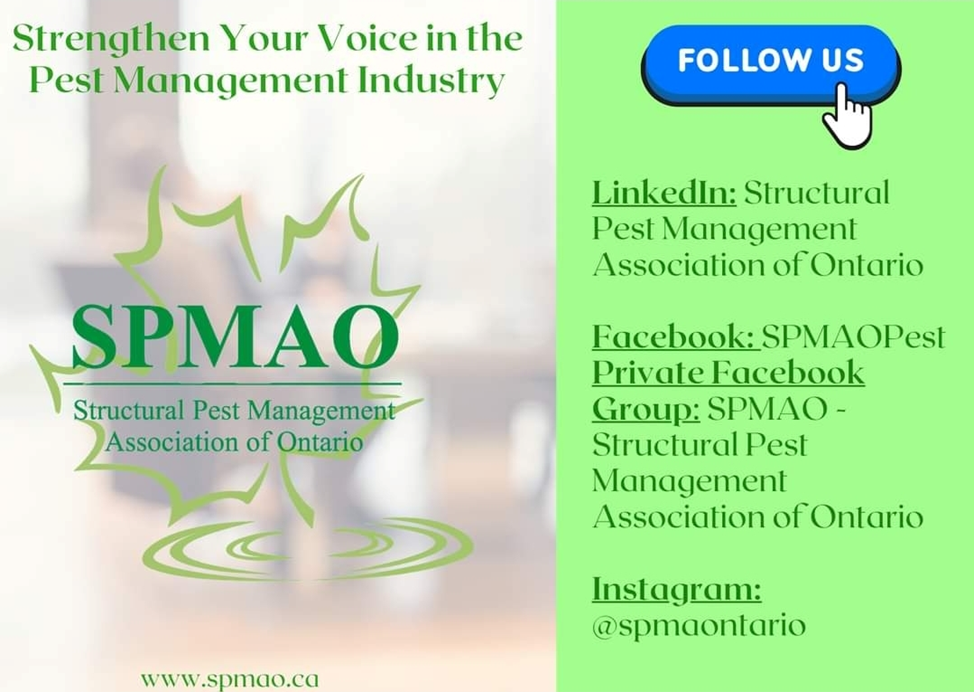



==================================================================

The Rodenticide Ban in British Columbia: Impact and Lessons for Ontario
The rodenticide ban in British Columbia (BC) was introduced with the intent of protecting wildlife and the environment. However, the ban has had several unintended negative consequences that have impacted pest control efforts, public health, and economic stability in the province. This article explores these adverse effects and argues why Ontario should reconsider implementing a similar ban.
Unintended Consequences in British Columbia
- Increased Rodent Populations: Since the implementation of the rodenticide ban, there has been a noticeable rise in rodent populations in urban and suburban areas. Without effective chemical control, rodents have become more prolific, leading to increased sightings and infestations.
- Public Health Concerns: The rise in rodent populations has escalated public health risks. Rodents are vectors for diseases such as hantavirus, leptospirosis, and salmonella. The increase in infestations has heightened the risk of disease transmission to humans, particularly in densely populated areas.
- Economic Impact on Pest Control Services: Pest control professionals in BC have faced significant challenges due to the ban. The restriction on rodenticides has forced these businesses to rely on more labor-intensive and costly methods like trapping and exclusion. This shift has increased operational costs and reduced profitability for pest control companies.
- Increased Costs for Property Owners: Homeowners and businesses have had to invest more in alternative pest control measures, which are often more expensive and less effective than rodenticides. The financial burden has been felt across various sectors, from residential properties to commercial enterprises.
- Wildlife Impact: While the ban aimed to protect predatory birds and other wildlife from secondary poisoning, the increase in rodent populations has led to other ecological imbalances. For example, higher rodent numbers can disrupt local ecosystems and food chains, potentially causing harm to other wildlife species.
Why Ontario Should Reconsider a Rodenticide Ban
- Urban Density and Rodent Control: Ontario’s major cities, such as Toronto, face significant rodent challenges due to their high urban density. Rodenticides are a crucial tool for managing these populations efficiently. An outright ban could exacerbate rodent problems and lead to public health crises.
- Economic Stability: The pest control industry is a vital part of Ontario’s economy. A ban similar to BC’s could lead to increased operational costs, reduced effectiveness of pest control services, and potential job losses. The economic ripple effect could impact various sectors, from real estate to hospitality.
- Balanced Regulations: Instead of a complete ban, Ontario can adopt stricter regulations on rodenticide use. Measures such as targeted application, better training for pest control professionals, and integrated pest management (IPM) strategies can mitigate environmental risks while ensuring effective rodent control.
- Public Health Prioritization: Protecting public health should be a top priority. Rodents pose significant health risks, and controlling their populations is essential to prevent disease outbreaks. Rodenticides, when used responsibly, are an effective tool in minimizing these risks.
- Learning from BC’s Experience: The challenges faced by BC following the rodenticide ban provide valuable lessons. Ontario can learn from these experiences and implement a more balanced approach that addresses both environmental concerns and the need for effective pest control.
The rodenticide ban in British Columbia, while well-intentioned, has led to several negative outcomes, including increased rodent populations, heightened public health risks, and economic strain on pest control services and property owners. Ontario should consider these challenges and adopt a more nuanced approach. Stricter regulations and responsible use of rodenticides can provide an effective solution that balances environmental protection with the need for efficient rodent control.
==================================================================
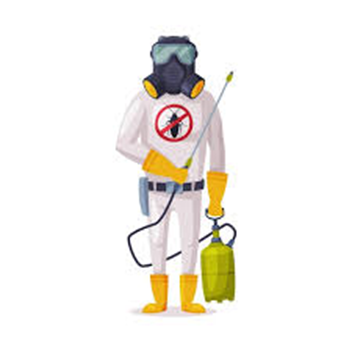
The Importance of PPE in Pest Control
READ THE LABEL!!
Personal Protective Equipment (PPE) is essential in the pest control industry to safeguard workers from the dangers of chemical exposure and physical harm. PPE includes gloves, masks, goggles, and protective clothing, all designed to minimize contact with harmful substances and prevent inhalation or absorption through the skin.
Proper use of PPE is critical—not just for personal safety but also for compliance with safety regulations. Employers must ensure that workers are trained in the correct use and maintenance of PPE, which helps prevent accidents and health issues.
Reading and following the label on pesticide products is equally important. Labels provide specific instructions on the required PPE for safe handling and application. Ignoring these guidelines can lead to serious health risks.
In summary, PPE and label adherence are vital for maintaining a safe and effective working environment in pest control, protecting both workers and ensuring compliance with industry standards
==================================================================

We invite you to contibute!
Please send your articles to [email protected].
==================================================================
Structural Pest Management Association of Ontario
1370 Don Mills Road, Suite 300Toronto, Ontario M3B 3N7
www.spmao.ca
This email communication is being sent to you because you are an Active Member of the Structural Pest Management Association of Ontario.